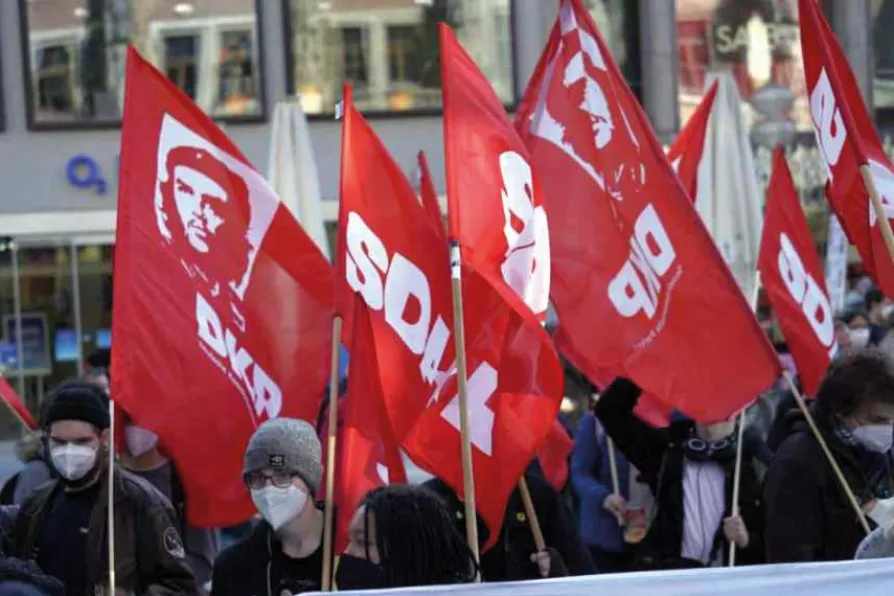CHRISTOPHE DOMEC speaks to CHRIS SMALLS, who helped set up the Amazon Labor Union, on how weak leadership debilitates union activism and dilutes their purpose


IN A shock decision on July 8, without any warning, Germany’s Federal Election Commission (FEC) ruled that the German Communist Party (DKP) was to lose its status as a political party.
This would have meant it not being eligible to contest the coming elections for the Bundestag, the federal parliament, on September 26. A number of other parties were also affected for various reasons.
In the FEC, parties with seats in the Bundestag are represented. Normally, decisions of the president of the FEC regarding the admittance of parties seeking to contest Bundestag and also European parliamentary elections are accepted.

NICK WRIGHT returns to Berlin and finds a city in darkness and political turmoil

In part two of May’s Berlin Bulletin, VICTOR GROSSMAN, having assessed the policies of the new government, looks at how the opposition is faring

Communists lit the spark in the fight against Nazi German occupation, triggering organised sabotage and building bridges between political movements. Many paid with their lives, says Anders Hauch Fenger










